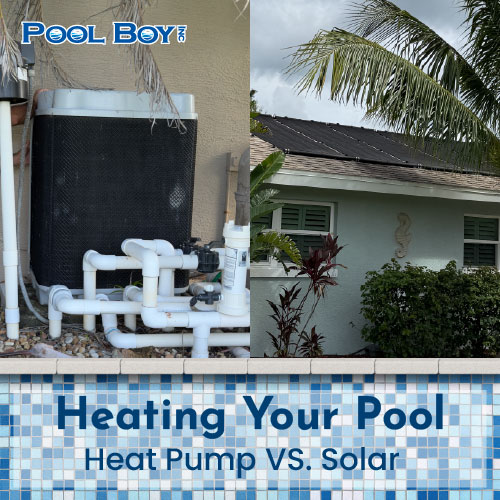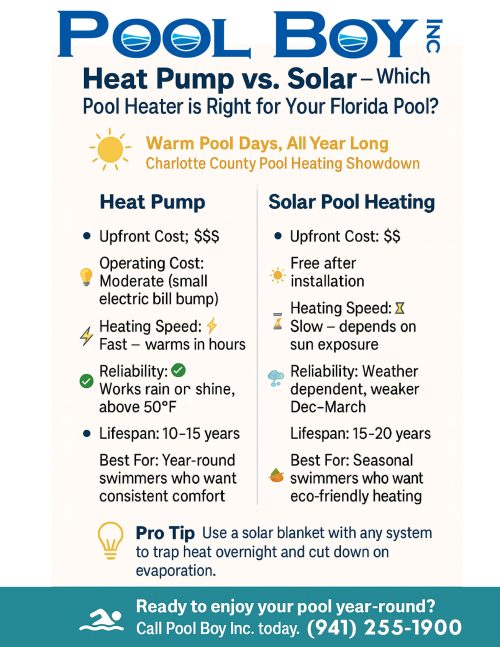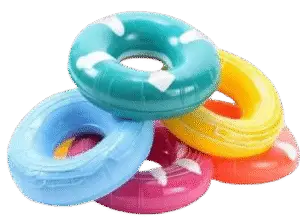Pool Heating Showdown:
Heat Pumps vs. Solar in Charlotte County
No one wants to step into an ice-cold pool — even in sunny Southwest Florida. If you’re in Charlotte County, you’ve likely thought about extending your swim season beyond summer. Whether you’re enjoying early morning laps or evening swims, having a pool heater can transform your pool into a year-round oasis.
At Pool Boy Inc., we specialize in solar pool heater and electric pool heat pump installations. In this guide, we’ll break down each option — so you can decide which heating system fits your lifestyle, budget, and pool needs.
Why Heat Your Pool in Florida?
Despite the sunshine, Southwest Florida’s cooler months can dip below ideal swimming temperatures—especially in the mornings, evenings, and off-season months like December through March. Without a pool heater, your pool might go unused for nearly half the year. A pool heating system helps:
Extend swim time into fall and spring
Keep water temps consistent year-round
Increase property value and buyer appeal
Make your pool more enjoyable for guests
Whether you have kids who love to swim or you’re looking for peaceful evening relaxation, heating your pool gives you more flexibility, comfort, and value.
From solar heaters that harness free energy to efficient electric heat pumps, Pool Boy can help transform your backyard into a year-round oasis with the installation of a pool heating system.
Heat Pumps: Reliable Comfort for Year-Round Swimming
How Heat Pumps Work
Electric pool heat pumps extract warmth from the surrounding air and transfer it into the water — like a reverse air conditioner. They work best when outdoor temps are above 50°F.
Pros & Cons of Heat Pumps
Pros of Pool Heat Pumps
Efficient and reliable — even on cloudy days
Faster heating than solar (hours vs. days)
Lower operational costs than gas heaters
Great for year-round use in Charlotte County
Cons of Heat Pumps
Slight increase in electric bill
Require occasional maintenance
Initial cost is higher than solar
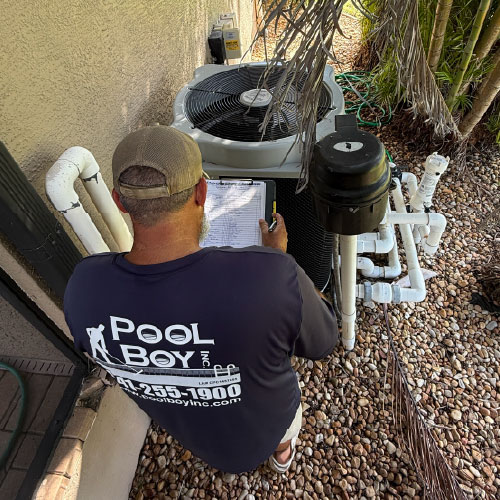
Solar Pool Heating: Free Energy with Some Limitations
How Solar Heating Works
Water is pumped through solar panels mounted on your roof. Sunlight heats the water before it returns to your pool — free, silent, and eco-friendly.
Pros & Cons of Solar Pool Heaters
Pros of Pool Heat Pumps
No ongoing energy cost
Long lifespan (15–20 years)
Environmentally friendly
Quiet operation
Cons of Heat Pumps
Dependent on sun exposure
Slower heating (days, not hours)
Less effective in winter (Dec–March)
Roof warranty may be affected by panel installation
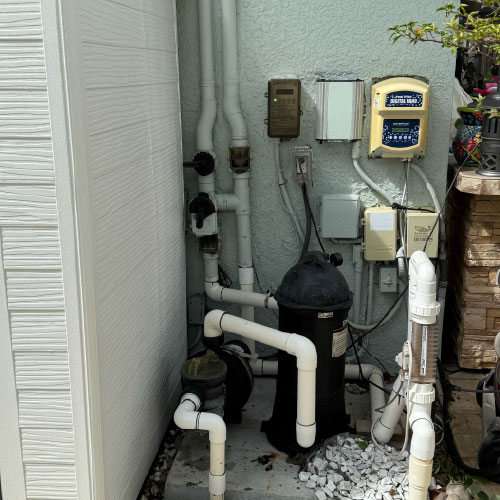
What About Gas Heaters?
Gas pool heaters heat water fast, but they’re best for spas or occasional use. Daily operation in Florida gets expensive quickly. They’re not ideal for homeowners looking for consistent comfort.
How to Maximize Any Heating System
Pro Tip: Use a solar Blanket
Whether you choose solar or a heat pump, using a solar blanket helps:
Retain heat overnight
Reduce evaporation
Cut energy costs
For convenience, you can also use a liquid solar blanket, added monthly to trap heat invisibly.
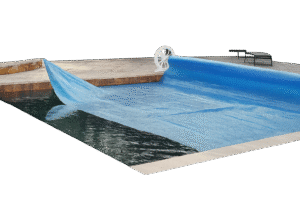
Which Pool Heater is Right for You in Charlotte County?
Choose a pool heat pump if:
You want reliable, fast, year-round heating
You use your pool regularly, even in winter
Choose a solar pool heater if:
You swim mostly spring through fall
You want low maintenance and zero operating cost
Not sure? Pool Boy Inc. can help assess your usage, space, and energy goals to recommend the perfect system.
Get Expert Installation & Free Pool Service
At Pool Boy Inc., we’ve helped hundreds of Charlotte County homeowners enjoy warm, crystal-clear pools all year long. Whether you’re ready to install or just exploring your options, our team is here to guide you.
🎁 Bonus Offer: Purchase your pool heater through Pool Boy and get 4 FREE weeks of professional pool cleaning service!

